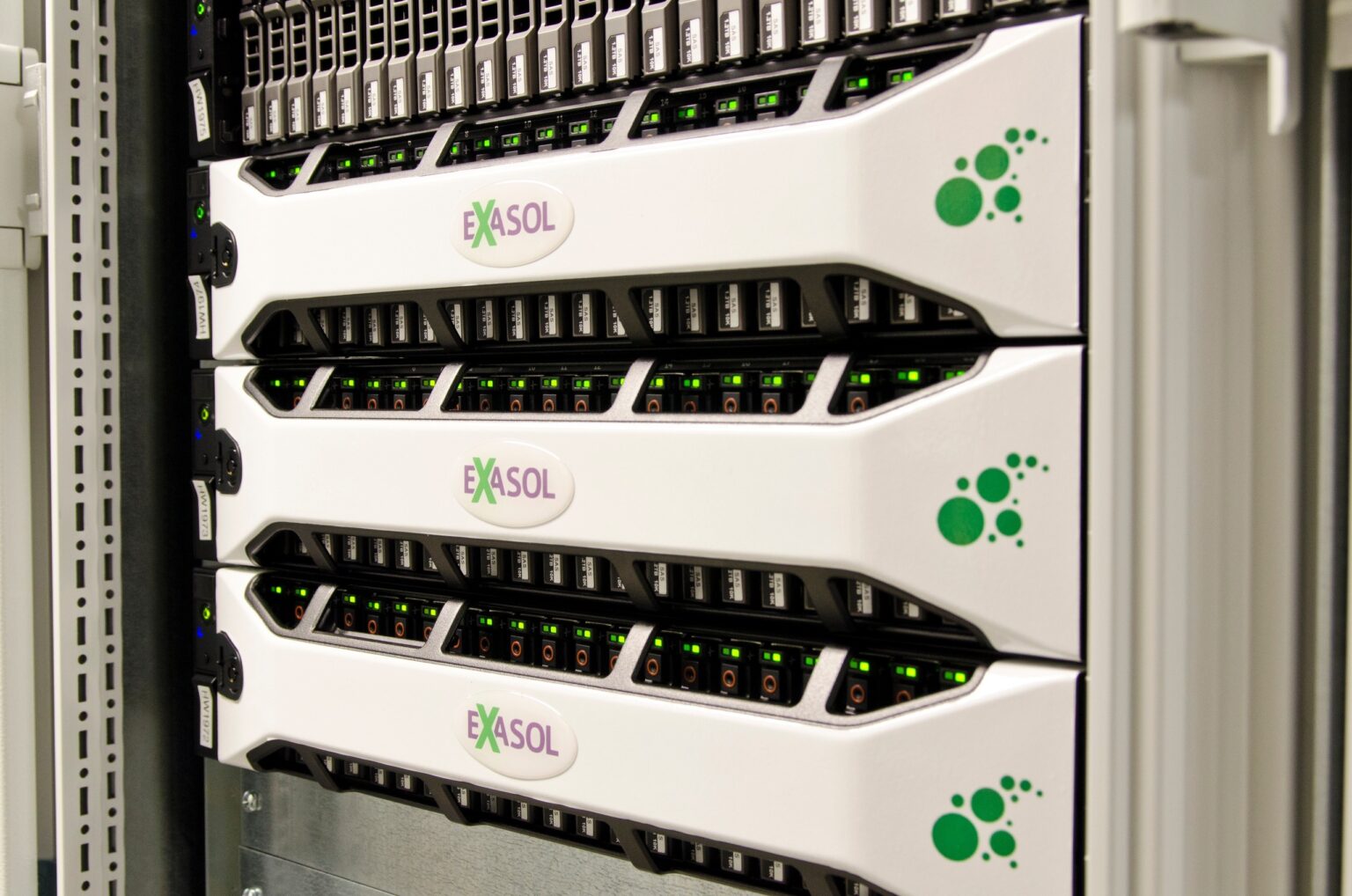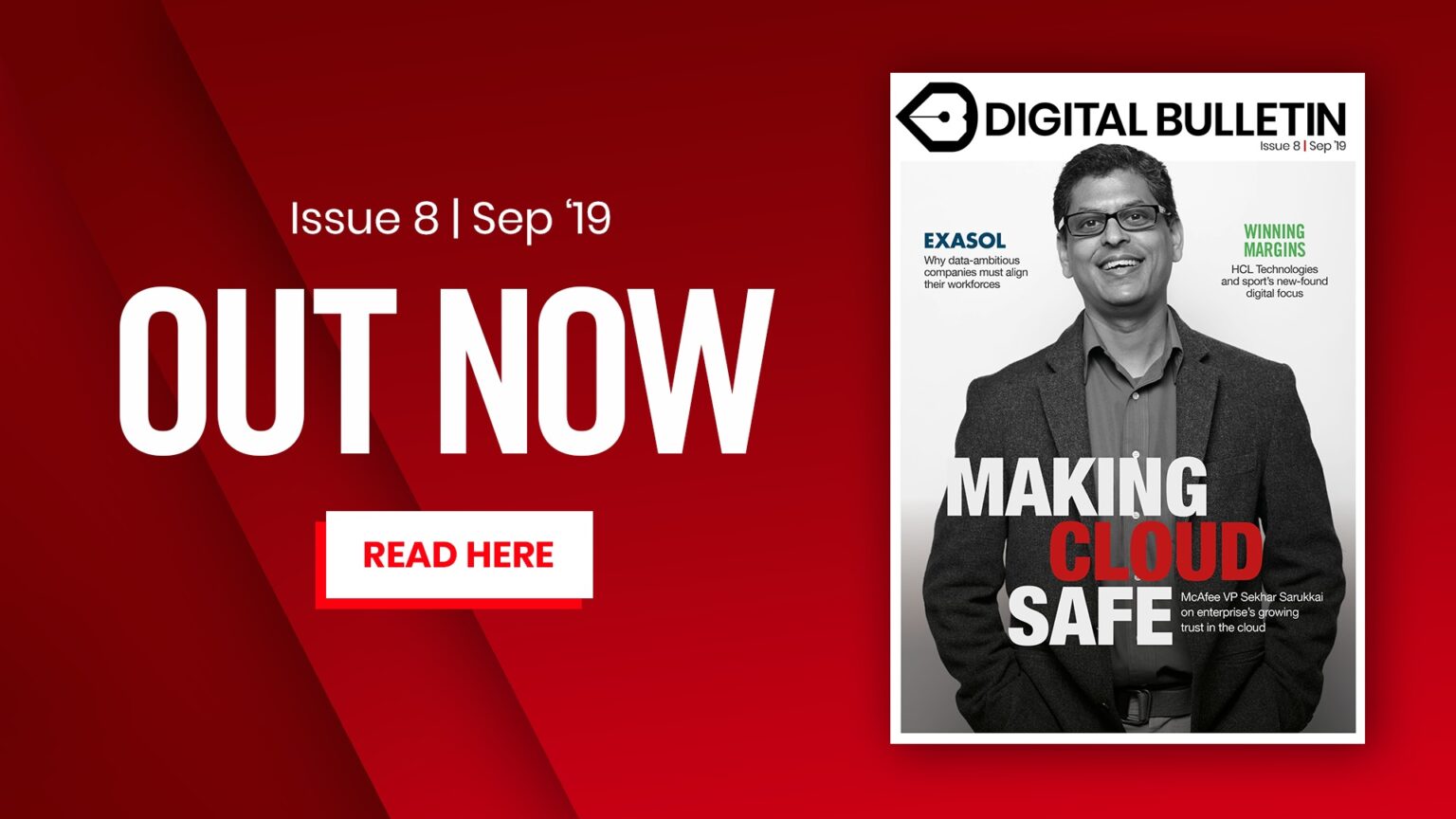
Data strategy is a dominant topic in modern business. You would struggle to find a leader of any enterprise company who isn’t making data central to their plans, and organisations are striving to integrate data-led decision-making into their operations.
In reality, we are only at the beginning of this voyage. Data explosion will continue — by 2025 463 exabytes of data will be created each day globally — and data-crunching technologies for businesses will grow more sophisticated, offering up unprecedented insights and guidance. But there remains a missing piece of the jigsaw.
Eva Murray, in her role as Head of Business Intelligence at Exasol, is tasked with overseeing its own data-driven strategy. Murray is therefore fully cognisant of both the opportunities and challenges represented by data’s lasting rise. And there is no bigger challenge for leaders than aligning workforces with their data ambitions.

Despite increasing deployments of machine learning and database technologies like Exasol’s own solution for analytics, people remain essential to maximising data’s potential — and Murray believes enterprise is on the cusp of an “awakening” around what skills are actually required to succeed on that journey.
“I think there might be a bit of an awakening at some point,” she explains to Digital Bulletin. “A lot of people are using data, they’re generating visualisations, they’re being involved — but one day they’ll wake up to the reality that they’ve all done it, but do they truly understand it? Do they truly move the needle? At that point we’ll hopefully put more programmes in place — whether it’s organisations or academia — so people can really focus on honing the skills they need to make a difference.”
The scope of organisations’ data plans doesn’t tally favourably with the depth of skilled workers available. Statistics relating to this gap make staggering headlines; demand for data scientists has increased by 344% since 2013 but the number of suitably-trained professionals drops well short of that demand. By 2020, IBM believes Europe will need 346,000 more data scientists. How are data-ambitious companies dealing with this shortfall?
According to Murray, one current trend is for untrained workers to tackle data handling themselves. While she recognises the positives in a new section of employees feeling empowered to use data to their advantage, she believes this approach comes loaded with risk.
We have to not just expect people to be data literate but also ensure that they can be, and that has to start at school and university
“There’s an increase of people moving into the data or tech world from a business context; they don’t necessarily have the technical foundations, but they move into it because they are subject-matter experts,” Murray explains. “That’s great because they bring a lot of business knowledge that really matters and is important for finding insights and asking the right questions, but they don’t necessarily have all the data literacy they should.
“I see a risk there where people deliver reports, analyses and insights for decision-making — but they do it with errors because they don’t have the foundations. They still need to build up the skills — to have a basic understanding of statistics, how to work with data, how to represent data effectively — otherwise we’re just reporting numbers but we’re not necessarily getting any smarter from them.
“Organisations, while looking for data experts, need to upskill internally to ensure everybody steps up and has the opportunity to handle data and be effective in this whole data value chain.”
Upskilling the wider workforce is one area where businesses can make gains, as Murray establishes, but the burden of responsibility spreads beyond companies themselves and into the world of academia. For enterprise to have any chance of plugging the data skills gap, it’s obvious that ties with education must be strengthened.
Evidence of progress can be found in the Future of Education and Skills 2030 project from the Organisation for Economic Co-operation and Development (OECD). The OECD brings together 36 countries to find solutions to common issues and the Future of Education and Skills 2030 paper is one of its major items of work. Included in the paper’s conceptual learning framework are ‘Core Foundations for 2030’ — and data literacy is among them.

The OECD is ultimately aiming to guide education systems in setting their future priorities, and the report states that school-age children becoming data literate ‘is essential’. Murray is adamant that this responsibility stretches across each stage of academia — and that every stakeholder has a role to play.
“I think for academia the challenge is to keep up with everything because you need to develop the curriculum and then you need to teach it. I would say changing what you do and what you test every year would be quite challenging. But we have to not just expect people to be data literate but also ensure that they can be, and that has to start at school and university,” she says.
“Support needs to come from industry to make resources available too; either people who come in to teach subjects, or maybe other resources like technology licenses, so that the students can be taught up-to-date knowledge and the latest technical skills.
“You should also involve them in real-life scenarios through projects or business cases. Giving students access to a professional conference, for example, would be great for those who enter the job market. It will give them an understanding of what’s expected, what sort of community they’re entering but also what the jobs are that are out there. Being involved in that professional community from an earlier stage would be a massive advantage.”
Helping to generate a stronger sense of community among data analysts is one of the objectives that motivates Murray in her position at Exasol. Across an impressive career that has included roles at Deloitte, Commonwealth Bank and Trident, she has been a first-hand witness to the digital revolution — and that experience informs her view that organisations can attract the best-of-the-best by creating optimal environments for data professionals to shine.
This includes attaching real value to their work, giving them space to develop their own skills and encouraging them to utilise their talents outside the pressures of the job. Murray leads on programmes where analysts volunteer for non-profit organisations and she says this all feeds into developing a sense of purpose, helping with talent retention. Non-profits also benefit from skills they would never normally have access to.
“Non-profits get immediate access to about 100 or 200 analysts who will actively participate. They might have one or two people in-house who can learn and get inspiration, and get a headstart on something they might have worked on. Analysts are so passionate about getting involved in projects like that because they feel their skills can make a difference,” Murray adds.
“In work, it’s about saying: what is going to inspire these analysts to come to work every day and tackle this data? It needs to be interesting. People want to know what they’ve done actually matters, because often the analysts are part of the back-office function — they want to be part of something that is important and making an impact.
“What’s also important is that, because skills need to develop and the demands of the market change so quickly, people need to be encouraged to learn new skills all the time — but also to be able to do that freely. Organisations should form some kind of community so that these analysts engage with one another, have exchanges and actually understand that they could work together and come up with many more ideas as a team.”
Murray’s passion for the subject clearly extends beyond the confines of her job — but sector and academia have a long path ahead before the data skills issue is anywhere near resolved. Murray is pleased that, right now, more is being done than ever before to highlight opportunities in the industry. The target market? Those of a curious mind.
“Between the technical knowhow and the communication skills people need to have, the ability to ask questions and the characteristic of being curious, or being relentless in the pursuit of digging deeper, is really important,” she concludes. “Look at numbers but wonder whether there’s a story behind it. What if you go further and compare this number to last year, the last quarter or another business department? How are you performing?
“Data analysts should be in a position to challenge stakeholders on their points. As a data expert, there should always be some data-driven suggestions that feed back into the process.”



